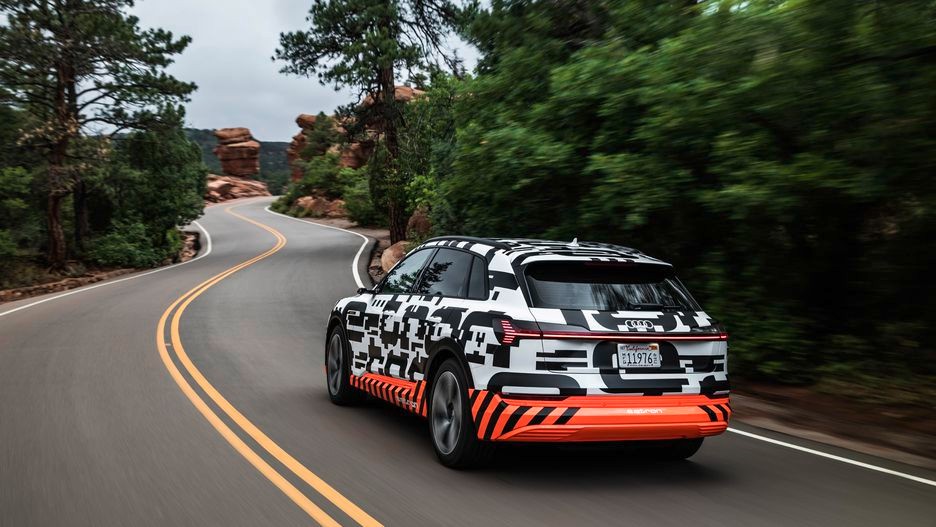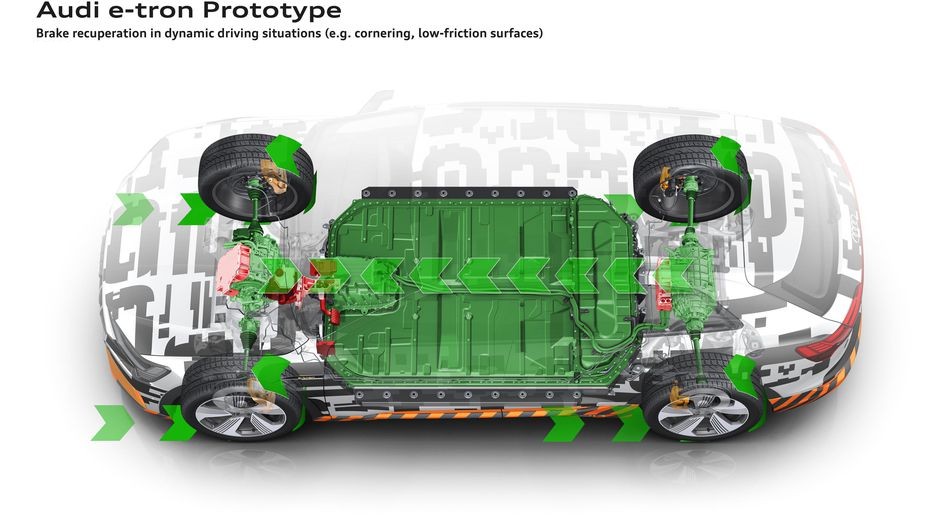By: Tycho de Feijter for 6th Gear Automotive Solutions.
Beijing, August 2018

Audi is developing new brake technology that will have a significant impact on the lifespan of discs and calipers. The electro-hydraulically integrated brake control system will make its debut on the production version of the upcoming Audi e-tron, a full-electric crossover.
The system prolongs the lifespan of the brake discs and brake calipers by… not braking that much. Because the e-tron is an electric car, it can regenerate electricity when slowing down. Under normal driving conditions, most of the ‘braking’ is actually done by the electric motor, regenerating energy in the process, without using the wheel brakes.
When the system’s computers detects that the driver brakes harder than usual, it can order the car to slow down using a combination of the electric motor and the wheel brakes. And finally, when the system senses an emergency-brake input, it uses the wheel brakes only, disconnecting the electric motor for immediate stopping power.

With each braking action, the computers decide if the vehicle should use the electric motor, a combination, or just the wheel brakes. Audi says that the wheel brakes only come into action when the driver decelerates by more than 0.3 G. With any lower deceleration, it uses just the electric motor. And this is why the wheel brakes can live so much longer on the e-tron: they are simply being used less. Audi also claims that the e-tron, an similar vehicles that will be launched further in the future, can be fitted with smaller brake discs, saving weight and costs.
Naturally, ever good comes with a ‘bad’. Because the brakes are used less, dirt will stick on more easy, and this in turn can lead to untimely rust. To prevent this from happening Audi has developed a system that automatically cleans the brakes once a day. Furthermore, the brake pads are made of a new material especially developed to leave less dust on the brake discs.
All in all a pretty smart system, and Audi says it is safer too. However, it also appears to add a lot of complexity. And every mechanic knows: the more complexity, the more that can brake break.
Images via Audi.